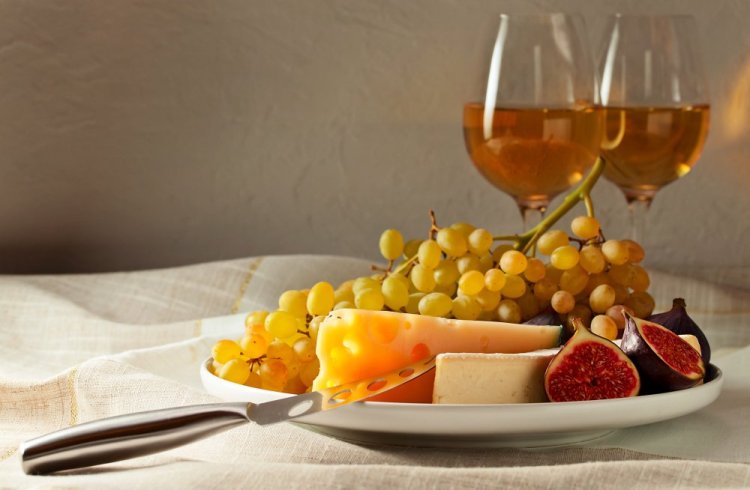I’m finding it quite difficult to write this article. Many of the Thanksgiving wine articles I have read are unbelievably boring. “Drink this Beaujolais Nouveau!” or “Drink this zinfandel – it’s quintessentially American: a peculiarly American wine paired with a peculiarly American food.” It’s been said a million times and it doesn’t need to be repeated. It might be so boring it’s offensive.
It’s all true, of course. Beaujolais goes quite nicely with roasted turkey. Wines from Beaujolais tend to have softer tannins, and the turkey is a lean fowl. That’s one of the classic rules of wine drinking I do abide by: fatty food, high tannins; not-so-fatty food, low tannins. The bright red-fruit quality of most Beaujolais goes well with turkey, roasted root vegetables and cranberry sauce.
I have drunk zinfandel with my Thanksgiving turkey before. My memory isn’t quite what it used to be, but I don’t remember it being bad. If it was horrible, I would’ve remembered it standing out. It didn’t, which means it must’ve been fine. If you’re going for fine, you could do worse than a zinfandel or a Beaujolais.
Or you could do something not many other people are going to do and drink a few bottles of passito. What? Exactly.
Many people will recommend the classics. Others will recommend that you drink something different, and I’d like to be one of those people. I reckon you don’t need me to recommend bottles of wine you’ve already had. I’ll be happy if I can introduce traditional varietals that are unknown and phenomenal. Two birds, one stone sort of thing.
I’m writing this article from Umbria, a small hamlet in Umbria to be precise, Geppa by name. It’s only a little warmer than it is back in Maine – cool, autumnal, crisp. Naturally I’ve been drinking lots of wines here, most of which would be delicious with Thanksgiving dinner. They’d be delicious with Thanksgiving dinner because the people here make wines that are meant to pair with most foods, and they don’t get too persnickety about it. Here are a few wines I plan to drink with my Thanksgiving meal.
I’ll be drinking passito with my turkey. Passitos are sweet. I know it sounds weird, but I’m going to do it anyway. Passito is a sweeter style wine made from red grapes, and, in the area I’m in, the sagrantino grape. While touring the Paolo Bea Winery in Montefalco, we were able to see sagrantino grapes drying on bamboo slats. Ninety days drying on bamboo slats and then the wine is made. The grapes are dessicated – less water and more sugar.
We don’t get Bea’s wines in Maine (to my knowledge) because he doesn’t make a lot of them, and bigger markets gobble them up. However, we do get the Moretti Omero Passito, distributed by Devenish Wines, which I will be drinking, and I know will be just as fascinating.
Passitos have a dried fruit quality to them, and the good ones have a racing stripe of acidity, like sour cherry juice or sour pomegranates. They have dark, raisin-ated red fruit and tart red fruit simultaneously. It’s trippy. Imagine dried red fruits and tart red fruits and crispy, salty turkey skin with dark and white meat NOT dried out by too much roasting. Sounds harmonious.
Our guide at Cantina Paolo Bea told me they drink passito, and have for generations, with their roasted pigeon. For dinner! I love it that sweet wines have a traditional place within a savory meal. Sweet and salty are great friends at the dinner table. Try it. Haven’t you always loved sweet wines but just been afraid to tell your snobbish, I-only-drink-dry-wines-but-I-don’t-know-why friends? Exit the closet, my friends! You’re in good, traditional company with the Umbrians. You can buy the Moretti Omero Passito at Maine & Loire on Washington Avenue in Portland.
I mentioned two weeks ago that I planned to drink Villeneuve’s “Tabacal” rancio wine. I’m still going to be doing that, by the way. I haven’t tried it, and I’m curious to see how the flavors of the wine will mingle with my pie. Chills. Two “dessert” wines in one meal. Bacchus save me.
So in conclusion, my advice is: Get creative! There’s almost no way to ruin a Thanksgiving meal with wine. Grab a Beaujolais or a juicy American zinfandel; they’re safe and predictable choices, but there’s nothing wrong with that.
Or … you can take a crazy recommendation from a guy who won’t stop experimenting with flavors and textures, tradition and progress, all in the hopes of having an interesting and memorable experience. Wouldn’t that be something to be thankful for?
Bryan Flewelling is the wine director for Big Tree Hospitality, which owns three restaurants in Portland: Hugo’s, Eventide Oyster Co. and The Honey Paw.
Send questions/comments to the editors.


